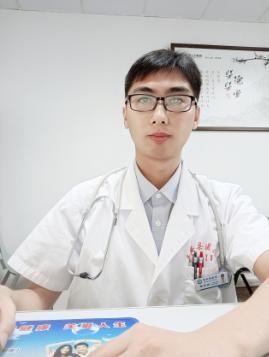Colon polyps refer to polyp-like lesions that protrude from the surface of the intestinal mucosa to the intestinal lumen. According to Chen Zhisheng, the attending physician of integrated traditional Chinese and Western medicine in Hui’an County Hospital of Fujian Province, they are called polyps before the pathological nature is determined, and they are often found in the sigmoid colon and rectum. Some are distributed in the entire colon, and can be single or multiple. The small diameter is only a few millimeters, and the large one is 2-3 cm. Some patients will experience abdominal discomfort, blood in the stool or blood in the stool. Under normal circumstances, “endoscopic colon polypectomy” is used for treatment. This minimally invasive surgery has the advantages of small wounds and quick recovery, but complications such as bleeding and perforation may also occur, causing great pain to patients. .
How should a patient with colon polyps eat a healthy diet? Chen Zhisheng said that traditional Chinese medicine believes that colon polyps are located in the large intestine, and their incidence is mostly based on spleen deficiency, which is closely related to liver and kidney. The spleen and stomach are located in the middle coke, which helps to digest grains, decompose, and transport and transform. If the spleen and stomach are deficient, coupled with other incentives such as improper diet, it is easy to cause the spleen to lose its healthy movement, the Qi mechanism is unfavorable, the meridians are blocked, and the blood stasis and turbid qi interact with each other, resulting in the occurrence of colon polyps.
To prevent the occurrence of colon polyps from the diet, first of all, we must protect the spleen and stomach. For example, when cooking porridge, we can put some traditional Chinese medicines that strengthen the spleen and Qi, such as Chinese yam, astragalus, Codonopsis, Poria, lentils, etc. For traditional Chinese medicines that are both medicinal and edible, Shenling Baizhu Powder and Xiangsha Liujunzi Pills can be used in proprietary Chinese medicines.
Secondly, the diet should avoid hot, greasy, rough, slag food, tobacco, alcohol, coffee, etc. Usually eat more vegetables and fruits, so as to promote the peristalsis of the body’s gastrointestinal function, which is conducive to the smooth defecation of patients and avoids the appearance of symptoms such as diarrhea. Do not smoke or drink alcohol. Smoking and drinking will increase the cancer rate of intestinal polyps, so patients should control the amount of alcohol they drink every day, and it is best to quit smoking. In life, you should reduce postures that increase abdominal pressure, such as squatting and holding your breath; treat other diseases around the anus in time, keep the perianal clean and hygienic, and develop the habit of regular bowel movements; adhere to physical exercise, have a good attitude to deal with pressure, and combine work and rest. Both are effective ways to prevent colon polyps.
After colon polyps are found, “endoscopic colon polypectomy” is generally used clinically. A healthy diet is very important for the postoperative recovery of patients with colon polyps.
How to diet and care for patients with colon polyps after surgery? Chen Zhisheng said that for patients after endoscopic intestinal polypectomy, if no electrocoagulation or electrocution is performed, but only simple clamp, they can usually eat some easily digestible porridge and soup on the same day. If there is electrocoagulation, electric resection, placement of titanium clips, endoscopic mucosal dissection, etc., according to the size and shape of the polyp, you should fast for 1-5 days, and you can eat liquid food for 3-4 days after the recovery of gastrointestinal function. Try to eat as many digestible and nutritious foods as possible, such as broth, fish soup, milk, eggs, etc. Within a week after the operation, try to rest in bed, do not exercise vigorously, and do not take hot baths to reduce the probability of postoperative bleeding. If you have bright red bloody stools, you should consult a doctor in time, and endoscopy to stop the bleeding if necessary. After the wound has healed one week after the operation, moderate intake of potassium-rich foods, such as apples, fish, oranges, etc., is beneficial to promote the recovery of the patient.
After colon polypectomy, it is necessary to avoid spicy, greasy and other irritating foods, because these foods are not conducive to the recovery of the wound, and may even lead to inflammation. For example, greasy foods can stay in the gut for a long time, prolonging the recovery time of the patient’s bowel function. Avoid cold food. Patients should not eat cold noodles, milk, egg soup and other foods that have been placed for a long time. This is mainly because cold food will cause serious irritation to the esophagus, especially the narrow part, which is very likely to cause esophageal spasm. Symptoms such as vomiting and pain will reduce the quality of life of patients. Therefore, it is appropriate to eat warm food, which is conducive to protecting the patient’s gastrointestinal mucosa, avoiding the appearance of symptoms such as esophageal spasm, and improving the comfort of the patient.
To sum up, colon polyps seem to have little harm to the human body, but if not treated in time, it may lead to colon cancer, a malignant tumor, so we should pay attention to this in life. disease prevention.

Chen Zhisheng, attending physician of integrated traditional Chinese and western medicine in Hui’an County Hospital of Fujian Province, member of the General Practice Branch of Fujian Association of Traditional Chinese Medicine. Graduated from Fujian University of Traditional Chinese Medicine in 2017, majoring in integrated traditional Chinese and Western medicine, mainly engaged in clinical research on digestive system diseases with integrated traditional Chinese and Western medicine.
(Wu Xueqin, Lian Xue, Zhuang Pengxia)